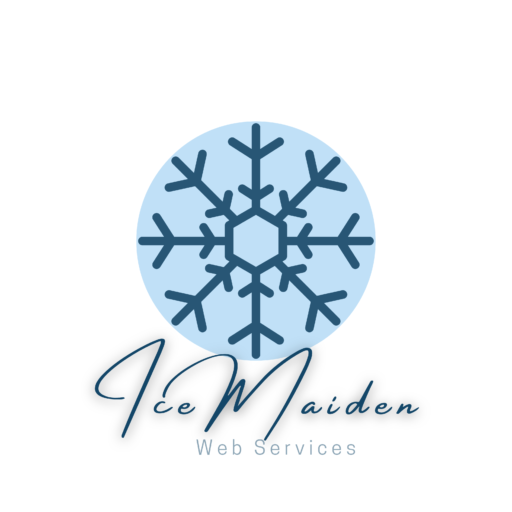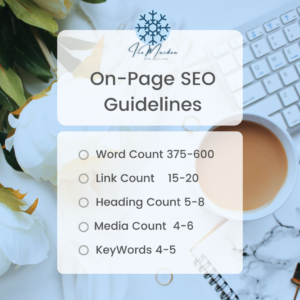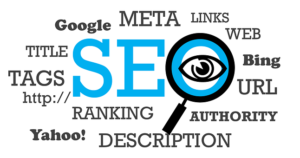
 Good writers know that their job is to serve the reader, and a compelling piece of writing will stand on its own merit. However, when you’re trying to attract readers — even just for your blog – writing for search engines is an important consideration.
Good writers know that their job is to serve the reader, and a compelling piece of writing will stand on its own merit. However, when you’re trying to attract readers — even just for your blog – writing for search engines is an important consideration.
It is important to understand the need for a content-focused approach to SEO. We are experienced in writing for both content sites and blogs, so that your web pages flow naturally from paragraph to paragraph, avoiding the stilted “paragraphs” seen on poorly written web pages.
Good copywriting includes avoiding technical jargon and unfamiliar industry terms that hinder the readability of your text for non-technical readers. Having a “proofreader”, even a friend or relative, take a look at your writing can be helpful.
These guidelines here are designed to help you write articles that will attract search engines, readers, and other website owners. By following these simple rules, your readers will see your content in search results, and you’ll get more traffic.
 There are no set rules for word count, but there are guidelines you can follow to ensure that your content is long enough to be engaging, but short enough not to be overwhelming. Most authorities advise ay 375 to 600 words is a good count to get and retain retain engagement.
There are no set rules for word count, but there are guidelines you can follow to ensure that your content is long enough to be engaging, but short enough not to be overwhelming. Most authorities advise ay 375 to 600 words is a good count to get and retain retain engagement.
Educational postings are generally longer, as you will need to give not only your information , but often background information to explain some concepts more fully.
If you’re publishing posts on a regular basis, you’ll probably want to stick to these shorter episodes, but If you’re publishing infrequently (like once a month), then more information should be fine.
 There is so much information out there on the web, and sometimes you just need to link to another page or authority on your subject matter.
There is so much information out there on the web, and sometimes you just need to link to another page or authority on your subject matter.
You will want both Interior (your page or blog) and External(from other pages) Links. Try to get at least 5 or 6 in a 600-word piece. The links have to be appropriate and add to your content, so choose links that make a valid connection to the content, but not to the point of distraction from the main point.
 An H1 tag is used to indicate the main heading or title of a webpage. It is considered a best practice to use only one H1 tag per page, as it helps search engines understand the structure and content of the page, which can improve the page’s search engine ranking.
An H1 tag is used to indicate the main heading or title of a webpage. It is considered a best practice to use only one H1 tag per page, as it helps search engines understand the structure and content of the page, which can improve the page’s search engine ranking.
Additionally, H1 tags are often used to style the main heading of a webpage, making it stand out visually and giving it a higher level of importance than other headings on the page.
Section Heading will be H2- H6.
 Adding photos, videos, and or other graphics is a great way to get more engagement.
Adding photos, videos, and or other graphics is a great way to get more engagement.
Other Reasons to incorporate Media on your site:
 Keywords on a website are important because they help search engines understand the content of the website and determine its relevance to users’ search queries. By including relevant keywords in the website’s content, meta tags, and alt tags, website owners can improve their search engine rankings and make it easier for users to find their site. This can lead to increased traffic, visibility and ultimately more business or conversions.
Keywords on a website are important because they help search engines understand the content of the website and determine its relevance to users’ search queries. By including relevant keywords in the website’s content, meta tags, and alt tags, website owners can improve their search engine rankings and make it easier for users to find their site. This can lead to increased traffic, visibility and ultimately more business or conversions.
Keyword research can be as simple or as complex as you make it. The basic process of finding keywords to target on your website involves identifying the topics and themes that are relevant to your business or content, and then using tools to find the specific words and phrases that people are searching for related to those topics.
However, keyword research can become more complex if you want to find more specific keywords, or if you want to optimize your website for a highly competitive market. This may require more advanced tools and techniques, such as competitor analysis, trend research, and tracking the performance of your keywords over time. It also may require more time to complete, especially if you’re trying to optimize for a large number of keywords.
Overall, keyword research can be a straightforward process, but it can also be time-consuming and require some level of expertise to get the most out of it.
I offer copywriting, editing, and SEO optimization for your Blog Content. Send me an email so we can make a plan.